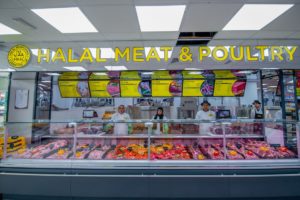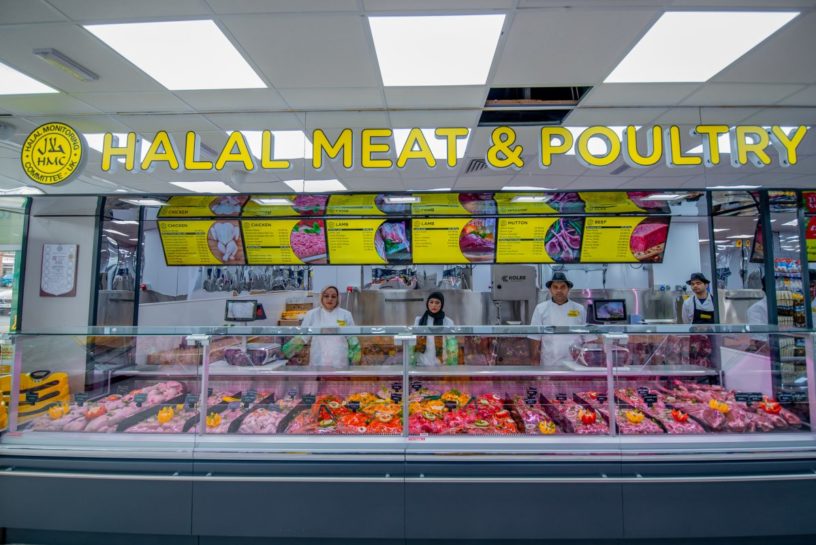
It has been a perennial problem for British consumers for whom this matters that to ensure that meat products labelled ‘British” are in fact British in origin. Meat vendors were permitted to label their meat as British even if the animal was raised and slaughtered abroad as long as it had been “processed” at some point in the UK until this practice was finally banned in 2015. Even now, British supermarkets have tried to find ways around this, such as putting the word “British” on the front of their packaging and noting the origin in much smaller font on the back, as legally required. Other tricks include branding something as if it appears to be sourced from a local farm, adding UK marks from the slaughterhouse that processed the meat, and just mixing the provenance of meats across a range.
How then, does a British meat consumer who wants to buy British guarantee they are not being misled?
Buy halal.
For cultural reasons, British Muslims purchase and consume much more fresh meat per capita than the national average. This creates huge demand in our domestic market. Despite Muslims only making up 6% of the British population, 72% of British lamb, 56% of British goats, and 22% of British chickens are slaughtered using a halal method in 2022. 29% of all British slaughterhouses produce halal meat (stun and non-stun). This percentage is only increasing due to the increasing Muslim population of Europe and demand from the Middle East.
The vast majority of all British meat is distributed in the UK, including halal meat, with 17% being exported. British meat consumers primarily purchase only certain cuts (such as chops and steaks) and so slaughterhouses are forced to export unpopular cuts, and import the meat that consumers will buy. This means that approximately 26% of meat sold in the UK is imported, primarily from EU countries, including 50% of beef, 30% of pork and 20% of lamb.
I was unable to trace exactly what percentage of UK meat imports are officially halal (as opposed to being halal by default and not labelled as such unless requested by suppliers) but one statistic I found from the Halal Monitoring Committee suggested it’s around 20%, using chicken as a baseline. Given there is no such thing as halal pork and it’s unlikely we’re importing much lamb for the domestic halal market given how much of it we produce in the UK, I suspect that that figure is probably much lower for the market overall.
Additionally, British Muslim meat consumers primarily buy their meat from local shops and butchers, with only 27% purchasing halal meat from large supermarkets. Supermarkets have tried to muscle in on this market share by opening their own halal meat counters (pg 10), but have had little impact. As far as I could tell, all UK halal suppliers are British companies. The story of halal is local businesses producing British meat for consumers who pay extra to ensure secure and reliable supply chains. No horse meat allowed.
So, if you want to support British farmers, British workers and British businesses, statistically, you should buy halal meat.
